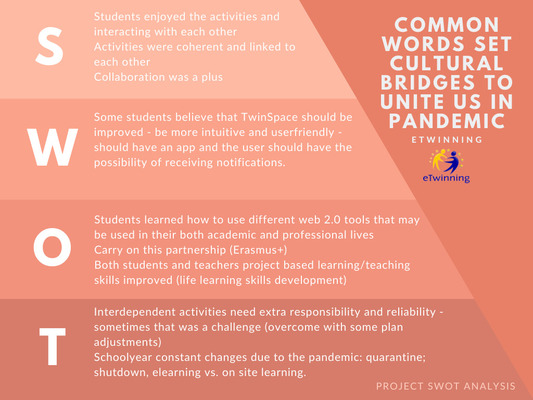
The project proved to be extremely interesting in several aspects. Students developed language skills by comparing their mother tongues, finding common words and contextualizing those same words in their origin and use. The students understood their social and cultural context, interacting in the English language, becoming themselves intercultural agents and social actors, recognizing diversity, respecting difference, relating equally, and enriching each other.
Most participants considered the project quite innovative and considered that the technological tools used will help them in their academic and professional lives.
Both students and teachers would like the opportunity to elevate this project to an Erasmus+ partnership to carry out a student exchange program.
In the final phase of the project, and due to very different phases of each school calendar (in some cases altered according to the epidemiological situation of each country/region), the final activities had to undergo some changes in their genesis. Evaluation proposals for students also suffered a poor participation due to these constraints. However, since throughout the project was always assessed formative and continuously, a process shared in formal moments (whatsapp of the teachers’ group) and formal (meetings with students), this fact was not considered disruptive when evaluating the project. Nevertheless, this will be considered in future projects.